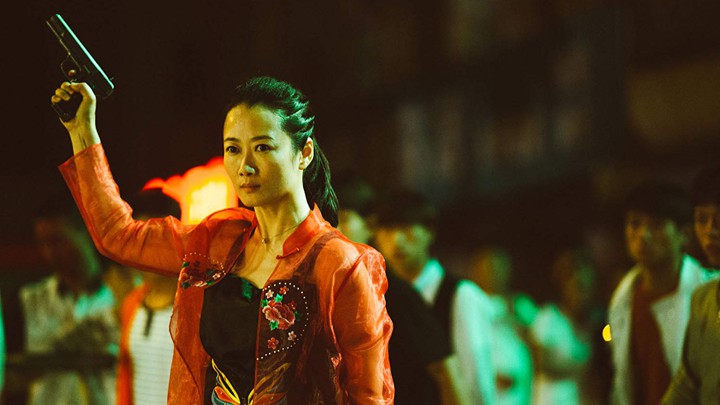It’s easy to forget that until the introduction of economic reforms in 1978, China was a purely communist country. The landscape in 2019 is a far cry from the Maoist era. Whilst things are beginning to slow down, the Celestial Empire has consistently been one of the fastest growing economies in the world. Huge cities have sprung up around the country with the government trying to encourage citizens to give up their traditional rural lifestyles and become the new urban middle-classes. This change has happened at such a rapid pace that whole communities have almost sprung up and vanished in a blink of an eye. The changing face of China is the subject of Jia Zhangke’s new film Ash is Purest White.
Qiao (Tao Zhao) lives in Datong, a once prosperous mining town which has now fallen into decay. Her boyfriend Bin (Fan Liao) is a mob boss in the Jianghu and has a great deal of power. Qiao wants to escape this life but he’s having nothing of it. When the pair are arrested after a confrontation, she decides to take the fall; spending the next five years of her life in prison. Upon release, she discovers a very different country.
Jia Zhangke is undoubtedly one of the most important living social directors and Ash is Purest White is one of his best films. Whilst it contains several elements frequently found in his work, it’s possibly his most rounded and coherent feature to date. A powerful story of a woman’s unconditional devotion to one man. Zhao gives her best performance yet. This is Qiao’s story and she is relentless in her resolve. It’s beautifully shot by Eric Gautier, placing you within each frame. You can almost feel the breeze. Ash is Purest White is an astute drama from a master storyteller.
Ash is Purest White is out in cinemas from 26 April.














No Comment